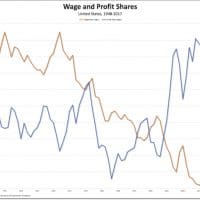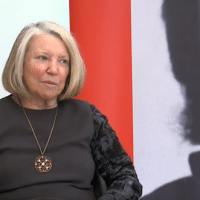-
Right-wing militias committing ‘acts of terrorism’ in an effort to destabilise Nicaragua, police say
ORGANISED armed right-wing militias are committing “acts of terrorism” across Nicaragua, according to police, with violent attacks aimed at destabilising the country.
-
Anthropocene Marxism
Thomas A. Laughlin reviews Marx and the Earth by John Bellamy Foster and Paul Burkett.
-
Class struggle according to liberals
Liberals like to talk about all kinds of social ills and identity-laden tensions—but not class struggle. That’s their persistent and enduring blindspot.
-
In search of a development model that doesn’t leave out people and the environment
Is it possible to have a development model that can work in harmony with people and nature?
-
Can someone inform Donald Trump that Muhammad Ali doesn’t need his pardon?
“The power to pardon is a beautiful thing,” said Trump.
-
Israel kills another Tamimi in ‘cold-blooded execution’
ISRAEL has been accused of a “cold-blooded execution” after soldiers killed another member of the Tamimi family in the occupied Palestinian territories.
-
UN calls on U.S. to “immediately halt” policy of detaining migrant children
The United Nations human rights office says the practice “amounts to arbitrary and unlawful interference in family life, and is a serious violation of the rights of the child.”
-
Zillah Eisenstein and Damayan: race, gender and socialism
Zillah Eisenstein is one of the foremost political theorists and activists of our time.
-
Marx and nature
At the end of January 2018, the rollercoaster ride that is the Trump presidency took another unexpected turn: the leader of the free world claimed that the United States could reenter the 2015 Paris climate agreement—if the U.S. were given a “completely different deal.”
-
Mental illness and the psychological trap – a political problem
Mental illness is a serious problem, reaching epidemic status, and the problem is increasing rapidly amongst young people not only in South Africa but globally. There is a tendency in society to either: (1) disregard mental illness as a serious problem, or (2) to recognise mental illness as a problem but fail to treat the underlying causes that result in mental illness.
-
Marx’s birthday and the dismal science
With 2017 marking the 150th anniversary of Capital and 2018 marking the bicentennial of the birth of Karl Marx, it is not a surprise that the number of events and exhibitions celebrating Marx’s work and exploring the significance of Marxism in the world today have gone through the roof.
-
Chavismo still in power, U.S. still belligerent, media still dishonest
Incumbent president Nicolás Maduro won in a landslide, taking nearly 68% of the vote, while his closest rival Henry Falcón could only muster 21%. With all the votes tallied, Maduro totalled a little over 6.2M votes.
-
Marx and Feminism
Noted scholar Nancy Fraser joined us for a wide-ranging interview covering Marx’ and Engels’ view of social reproduction, the tension between class, gender, and race, and the need for a “Feminism for the 99%”
-
Hurricane Maria death count over 5,000–not 64, new study finds
A recent study published in The New England Journal of Medicine estimates the number of deaths caused directly or indirectly by Hurricane Maria in Puerto Rico at over five thousand.
-
North Korea has good reason to be wary of a Trump deal
Though Trump’s threats against North Korea have lacked some of the grace with which his predecessors operated, to Pyongyang, U.S diplomacy has been marked by 65 years of broken promises and outright aggression.
-
Marx ratio
First there was the Great Gatsby curve. Then there was the Proust index. Now, thanks to Neil Irwin, we have the Marx ratio.
-
Maduro is re-elected in a show of popular resistance
The May 20, 2018 elections in Venezuela were a victory for the popular sectors and a defeat for the U.S. backed opposition, the Democratic Unity Roundtable (MUD).
-
How can the resistance of the Venezuelan people and Nicolás Maduro’s government be explained?
Despite economic war, sabotage, low oil prices, international sanctions, and political violence, the Venezuelan people are still standing and supporting the leaders of the Bolivarian Revolution.
-
Why Venezuela’s election matters—it was under siege by U.S., Canadian and EU influence
Many Americans are angry about Russian interference in the U.S. presidential election. Here’s what they don’t know about our country.
-
Eco-Marxism and deforestation
The article uses the Eco Marxist perspective to look at deforestation and the impact it has on Earth in terms of soil erosion, air pollution and the threat it places on plant and animal life.




















